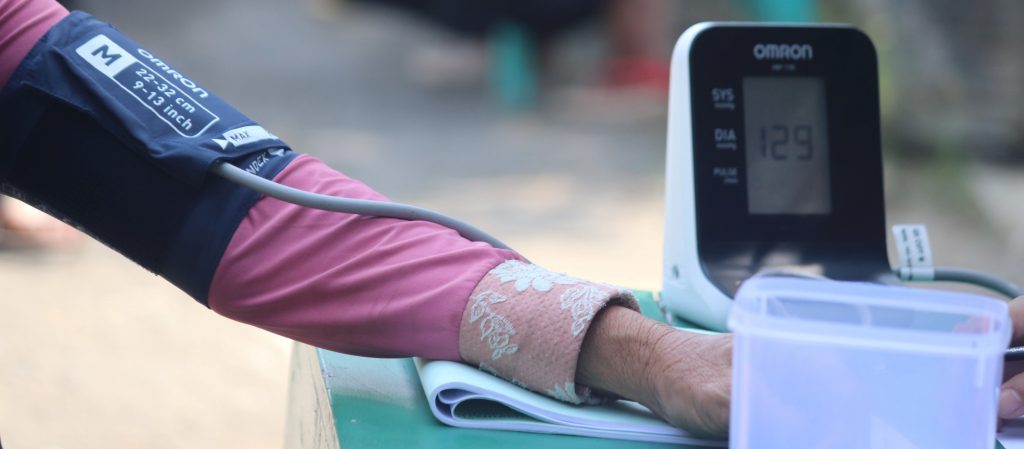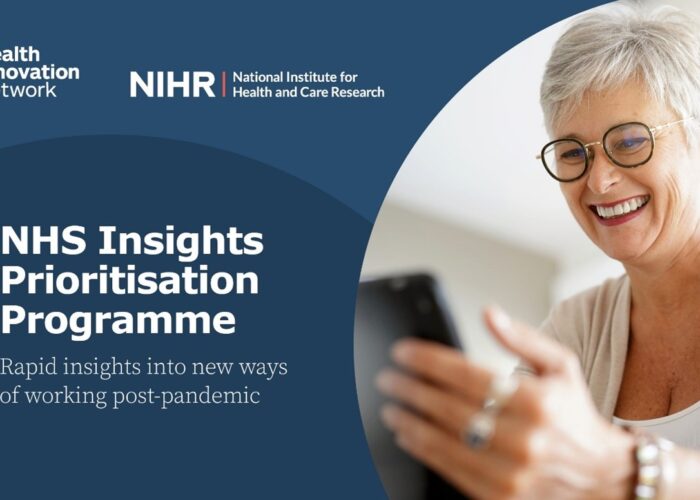By Larry Koyama , Innovation Lead, Imperial College Health Partners

This week is Know Your Numbers week, the UK’s biggest blood pressure (BP) testing and awareness event, organised and delivered by Blood Pressure UK. Whilst empowering patients is a key part of delivering on the local ICB and national ambitions for patients to understand (and manage) their own blood pressure, there is a wealth of data available to us that can support a proactive and personalised approach to reducing cardiovascular disease at a population level – and we need to make sure we also use this data to its full effect.
Data to identify the problem
The NHS Long Term Plan states that one of the biggest areas where the NHS can save lives over the next 10 years is in reducing the incidence of cardiovascular disease (CVD). CVD causes one death every three minutes in the UK, with those in the most deprived areas four times more likely to die. CVD is also estimated to cost the healthcare system £7.4billion a year, with an annual cost to the wider economy of £15.8million. Hypertension is an important risk factor in CVD, so managing high BP, whilst not as straightforward as some other clinical indicators, is highly effective at preventing life-changing CVD events like heart attack and stroke, reducing demand on hospital services, and reducing health and social care costs.
Data to identify the size of the prize
At ICHP, we are proud to be locally leading on the Blood Pressure Optimisation (BPO) programme in North West London (NWL), which is nationally commissioned by NHS England. The programme takes a population health management (PHM) approach by encouraging proactive case finding in Primary Care. During the pandemic, the number of BP readings taken reduced massively. We know from modelling done by our AHSN colleagues UCLPartners that in NWL more than 52,000 fewer patients with BP were treated to target or did not have their BP recorded. This puts us at risk of up to 790 extra heart attacks and strokes in the next three years. And this is just those we know are diagnosed.
Data used proactively
The BPO Programme uses UCLPartners’ proactive care framework to support Primary Care to risk stratify patients and recall those most at risk of an adverse CVD event, most urgently. Our role at ICHP is to work with our local Primary Care Networks to support approaches, such as the proactive care frameworks, to enable detection, stratification and optimisation of care.
But there are a number of other ways we can also be using data to ensure sustainable and valuable transformation.
Predictive use of data
With prevalence of CVD on the rise as well as effective risk stratification and subsequent management of those we know are already at risk, we also need to understand how many people are potentially going undiagnosed. In NWL we have this capability in the Discover-NOW dataset, the deidentified Whole System Integrated Care (WSIC) data of 2.5 million people who are registered with a NWL GP. Smart use of this data using indicators like obesity, family history and other wider determinants of CVD risk, has the potential to support proactive targeting of those as yet undiagnosed too.
Data to aid decision-making
As with any transformation at scale, we also need to make sure that the work we do supports a reduction of health inequalities, rather than exacerbates them. Whilst the pandemic negatively contributed to the size of the CVD problem, there is also a lot of learning that can be garnered from the brilliant work the vaccination programme did using data to inspire personalised and culturally relevant care across the brilliantly diverse NWL. The vaccine rollout’s effectiveness relied on the combination of identifying populations at risk and levels of vaccine uptake, and clinical experience and community engagement to deliver care at scale and at speed. By working with PCNs on an individual basis, and developing bespoke approaches for their locality, as well as sharing best practice and learnings across NWL, we can similarly empower our NWL teams to use the data to make decisions on where and how to deliver case finding in their communities.
Incentivising with data
Too often healthcare transformation halts because the part of the system that would feel the benefit, is not the part of the system that needs to do the graft. The BPO programme is incentivised in primary care by existing incentive schemes (e.g. meeting Quality and Outcomes Framework targets), but we can also use data to show the benefits felt in acute and secondary care locally more immediately, as well as the predictive benefit to Primary Care that may not be felt for a good number of years.
We know prevention is not just better than the cure, it is the only way to create a sustainable future for our healthcare system. And I for one am excited at the prospect of improving BP and CVD outcomes for our North West London population. To find out more about the BPO programme, email larry.koyama@imperialcollegehealthpartners.com.
References:
Health matters: preventing cardiovascular disease – GOV.UK (www.gov.uk)



